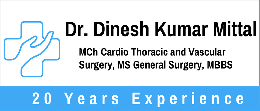Can Stem Cell Therapy Regenerate Heart Tissue?

Imagine a future where the heart can heal itself. With cutting-edge innovations in medical science, that future is becoming a reality. Stem cell therapy offers a beacon of hope for patients battling heart disease, one of the world’s leading health challenges. Instead of merely managing symptoms, this revolutionary treatment taps into the body’s natural ability to regenerate, aiming to restore damaged heart tissue and improve overall cardiac function. Traditional treatments, such as medications and surgeries, help manage symptoms, but what if there was a way to regenerate damaged heart tissue?
This innovative treatment is gaining traction as researchers explore its potential to revolutionise cardiology. But how effective is it? Can stem cells truly heal a failing heart?
Let’s dive into the science, benefits, risks, and future of stem cell therapy for heart disease.
What Are Stem Cells?
Stem cells are the body’s raw materials specialised cells that have the unique ability to develop into different types of cells, including heart muscle cells. Unlike regular cells, which serve specific functions, stem cells are capable of self-renewal and differentiation, meaning they can transform into various tissues and organs in the body. These cells play a crucial role in repairing damaged tissues and promoting regeneration, making them a promising solution for heart disease treatment.
For heart disease treatment, mesenchymal stem cells (MSCs) are commonly extracted from bone marrow, adipose tissue, or blood. They are widely used because of their potential to regenerate damaged heart muscle, improve blood circulation, and reduce inflammation.
What Is Stem Cell Therapy?
Stem cell therapy is a revolutionary treatment that uses stem cells to repair or replace damaged heart tissue. It aims to regenerate heart muscle, improve function, and reduce the risk of heart failure, particularly in patients with coronary artery disease or other cardiovascular conditions.
Do Stem Cells Have the Potential to Heal a Damaged Heart?
Yes, stem cells show significant potential in healing a damaged heart. Research indicates that certain types of stem cells, particularly mesenchymal stem cells and cardiac progenitor cells, can regenerate heart tissue by promoting the growth of new, healthy cells and enhancing blood vessel formation. These cells may also help replace scarred tissue and improve heart muscle function, especially after a heart attack or in cases of chronic heart failure. Research suggests that stem cells can regenerate heart tissue and aid in heart tissue regeneration by stimulating new cell growth and improving blood circulation. However, while promising, stem cell therapy for heart disease is still being studied to determine its long-term effectiveness.
“The exciting aspect of stem cell therapy is its potential to go beyond symptom management. We’re looking at actively repairing the heart muscle itself, which is a fundamental shift in treating heart disease,” states Dr. Dinesh Mittal. Moreover, stem cell therapy may reduce inflammation and prevent further deterioration of cardiac tissue, offering patients a chance at improved heart function and quality of life. However, it’s important to note that while clinical trials have shown encouraging results, stem cell treatment for heart disease is still in the experimental stages.
How Does Stem Cell Therapy Work for Heart Disease?
In this therapy, stem cells are typically sourced from the patient’s bone marrow, adipose (fat) tissue, or peripheral blood. These cells are then carefully processed in a laboratory to isolate and concentrate the most potent regenerative cells. Once ready, they are injected directly into the damaged or weakened areas of the heart, either during surgery or through a catheter-based procedure.
The goal is to stimulate the repair of injured heart tissue, improve blood flow, and encourage the growth of new, healthy heart cells. This approach may not only enhance heart function but also reduce symptoms like fatigue and breathlessness in patients with heart disease or heart failure.
Dr. Mittal highlights, “Stem cell therapy offers a promising way to repair the heart from within by using the body’s healing cells to restore damaged tissue.”
What Are the Benefits of Stem Cell Treatment for Heart Failure?
Stem cell therapy offers a range of potential benefits for individuals suffering from heart failure.
- Tissue Regeneration: Helps repair damaged heart muscle
- Improved Heart Function: Can enhance pumping capacity
- Reduced Inflammation: Minimises tissue damage
- Better Quality of Life: May improve symptoms and endurance
What Are the Risks and Limitations?
While stem cell treatments offer significant benefits, it’s essential to be aware of their potential risks and limitations to make informed decisions.
- Effectiveness may vary from patient to patient
- Potential risk of immune rejection or complications
- High cost and limited availability of treatment
- Long-term effects are still under investigation
What Is the Future of Stem Cell Therapy in Cardiology?
Advancements in regenerative medicine and genetic engineering are paving the way for more effective and accessible stem cell treatments for heart disease. With further research, this therapy could become a mainstream solution for cardiovascular conditions.
“Stem cell therapy is reshaping the future of cardiology. With continued research, we are moving closer to making heart regeneration a standard treatment for cardiovascular diseases,” says Dr. Mittal.
Conclusion
Stem cell therapy represents a groundbreaking advancement in the treatment of heart disease, offering hope for patients with limited options. While still an evolving field, early research and patient experiences suggest its potential to improve heart function and quality of life. As technology advances and clinical trials expand, stem cell therapy may soon become a widely accepted treatment for cardiovascular conditions.
For those exploring regenerative medicine as an option, consulting an experienced specialist can provide the necessary guidance and insights tailored to individual needs.
FAQs
1. Who is eligible for stem cell therapy for heart disease?
Patients with chronic heart failure, coronary artery disease, or those who have not responded to conventional treatments, may be eligible. A consultation with a specialist is necessary.
2. How long does it take to see results from stem cell therapy?
Improvements can typically be seen within 2 to 12 weeks, depending on the patient’s condition and how well they respond to treatment.
3. Is stem cell therapy a permanent cure for heart disease?
While it can improve symptoms and heart function, it is not yet considered a permanent cure. Long-term studies are still needed.
4. Are there any side effects of stem cell therapy?
Most patients tolerate the procedure well, but minor risks, such as infection, inflammation, or immune rejection, may occur.
5. What is the cost of stem cell therapy for heart disease?
In India, the cost of stem cell therapy for heart disease typically ranges from ₹ $1,500,000 to ₹ $2,500,000 (approximately $18,000 to $30,000). This estimate often includes hospital stays and associated medical expenses. In comparison, similar treatments in the United States can start at around $50,000.
Explore more blogs: How is Total Arterial CABG Beneficial for Cardiac Wellness and Longevity of a Patient’s Life?
